Davao City, Philippines, 11 Ramadan 1437/17 June 2016 (MINA) – The Moro Islamic Liberation Front (MILF) wants the proposed Bangsamoro Basic Law (BBL) to be enacted first before the incoming administration pursues efforts to change the type of government from unitary to federal.
MILF vice chairman for political affairs Ghadzali Jaafar said it may take time before their peace agreement with the government is implemented if the establishment of the Bangsamoro government is subsumed by the planned shift to federalism.
“What we want, as far as we’re concerned, is to implement the Bangsamoro government first before federalism,” Jaafar was quoted by Philsar as saying.
“We believe it would be better if the Bangsamoro government is implemented first. The implementation of a federal government, in case it is approved by the Bangsamoro people, will take longer because the Congress of the Philippines still has to work it out,” he added.
Also Read: Arakan Forces Impose Movement Restrictions on Rohingya in Maungdaw
Jaafar also believes the BBL should be a legislation separate from that which would establish federalism.
“Naturally, the BBL should become a law. The Bangsamoro (government) cannot be implemented without a law,” he said.
Jaafar, nevertheless, remains optimistic that the BBL would be enacted under the presidency of Duterte, the first chief executive from Mindanao.
The proposed BBL seeks to form a new Bangsamoro region with enhanced economic and political powers. The legislation would implement the final peace agreement signed by the government and the MILF in 2014. The measure was bypassed by the 16th Congress despite being a priority of the Aquino administration.
Also Read: Arakan Association Trains Rohingya Students to Write News in English
Duterte, on the other hand, is pushing for a federal type of government that would possibly include the Bangsamoro government.
Federalism involves the sharing of powers between the central government and local state governments, a set-up that its supporters believe would promote development outside Metro Manila.
The system would allow local state governments to levy taxes, implement business regulations, build infrastructure and establish courts, among other powers.
Also Read: Myanmar Military Attacks Ayeyarwady Villages: 9 Dead, 20 Wounded
Negative consequences
Last month, Davao del Norte representative-elect Pantaleon Alvarez said the incoming Congress would not tackle the BBL because it would be subsumed by the plan to change the form of government to federalism, one of the priorities of the Duterte administration.
Alvarez, Duterte’s choice for speaker of the House of Representatives, said the BBL would have to give way to federalism “because they are the same concept.”
Jaafar believes Alvarez’s statements are personal and do not reflect the official stand of the Duterte administration. He said the delay in implementation of the Bangsamoro government could yield negative reactions.
Also Read: Indonesia-Saudi Arabia Seal $27 Billion Investment Deal During Prabowo’s Visit
“You know, Bangsamoro people have been waiting for so long. Many of them are frustrated because the resolution of the Bangsamoro issue is taking so long despite the agreement,” Jaafar said.
The MILF official believes the recent violent incidents may have been borne out of the frustration of some groups who are waiting for the peaceful resolution of the Bangsamoro issue.
When asked if he thinks violence would erupt if the BBL is not passed, Jaafar said: “I’m not saying that. But I believe that it is one of the motivations of some people who are sowing violence.”
Jaafar admitted the Bangsamoro people are disappointed with the non-passage of the BBL under the Aquino administration.
Also Read: Russia Officially Recognize Taliban Government in Afghanistan
Reaching out to MNLF
Jaafar also revealed that his group is talking to the Moro National Liberation Front (MNLF) to come up with a unified stand on the Bangsamoro government.
“I am very optimistic that eventually, we can come out with a common approach in order to address the Bangsamoro issue,” he said.
Also Read: Health Ministry Reports 418 Indonesian Hajj Pilgrims Passed Away
Jaafar said the MILF and the MNLF would look into the provisions of the final peace agreement, including the territories to be covered by the Bangsamoro political entity.
He noted that under the Tripoli Agreement, which paved the way for a peace deal between the government and the MNLF in 1996, the entity covers 13 provinces. The Comprehensive Agreement on the Bangsamoro signed by the government and the MILF, meanwhile, involves only five provinces.
“We can come up with a solution to this issue. There are other issues which I don’t want to take up in public,” Jaafar said.
Jaafar said their efforts would also involve the improvement of the proposed BBL. (T/R07/R01)
Also Read: Saudi Arabia Issues 190.000 Umrah Visas Following Hajj
Mi’raj Islamic News Agency (MINA)





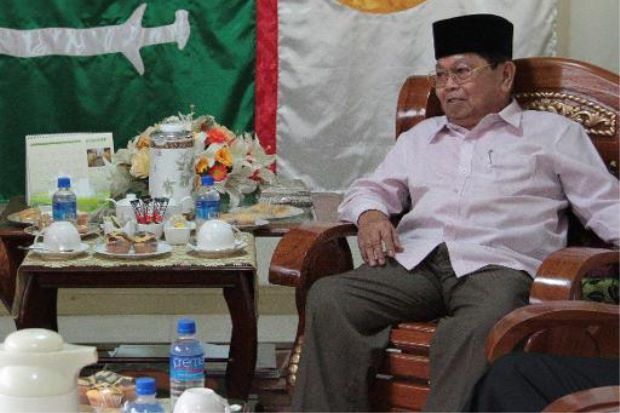




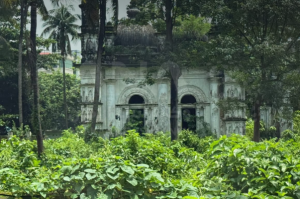




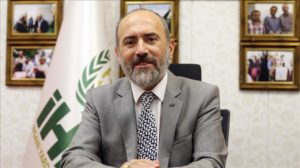
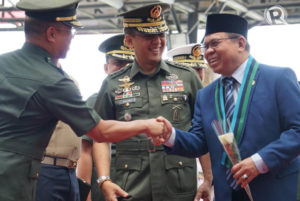
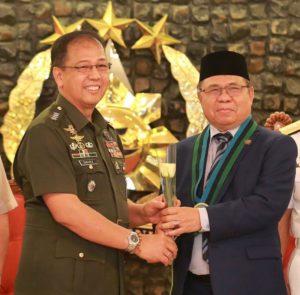
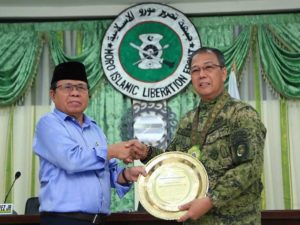
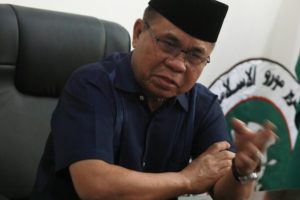
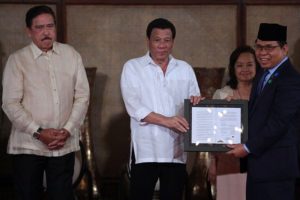






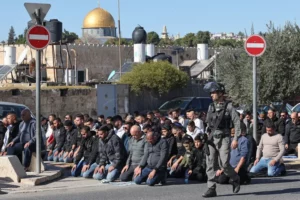



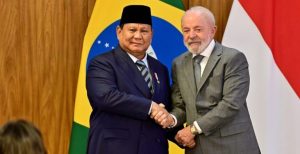



 Mina Indonesia
Mina Indonesia Mina Arabic
Mina Arabic